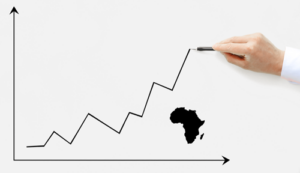Because Of The Infancy Of The African Insurance Market, There Is A Lot Of Room For Expansion.


According to a recent report by McKinsey and Company, economic growth across the continent is actively reshaping Africa’s historically underdeveloped insurance market. The report outlines the trajectory of the African insurance market’s growth and the sector’s potential for prodigious development. Prior to the COVID-19 epidemic, the African insurance industry was predicted to increase at 7% per year from 2020 to 2025, trailing only Latin America as the world’s fastest-growing insurance market. According to this forecast, the African insurance industry will grow at a rate roughly twice that of North America, more than three times that of Europe, and somewhat faster than Asia’s 6% growth rate. Moreover, despite the fact that the pandemic has disrupted consumer and commercial discretionary spending, including insurance, the analysis predicts that the pandemic will slow rather than stop Africa’s insurance growth, as well as accelerate the migration to digital and remote platforms.
What Does The Current State Of Africa’s Insurance Industry Look Like?
According to the International Risk Management Institute, the African insurance business is worth $68 billion in gross written premiums, which are defined as “the total premium written by an insurer before deductions for reinsurance and ceding commissions.” In comparison to other emerging economies, Swiss Re reports a $157 billion insurance market in Latin America and the Caribbean, and a $194 billion insurance market in Asia (excluding China) in 2019. Furthermore, Africa’s insurance industry is highly fragmented, with disparities in distribution among countries. For example, only ten countries account for 91 percent of insurance premiums, with South Africa accounting for 70 percent of the market’s premiums. McKinsey defines six “major insurance regions in Africa”: Francophone Africa, Anglophone West Africa, Southern Africa, North Africa, East Africa, and Angola. North Africa’s market share, which is second only to South Africa’s, is over three times that of all other regions.
Africa’s Insurance Growth Could Be Sparked By A Few Key Trends.
Accessibility Is Being Improved Through Digital Innovation And Expanded Distribution.
In Africa, the transition to digital channels is well underway, and with it comes higher expectations for service performance. While a lot of insurers are beginning to digitise client journeys, there are still huge opportunities to expedite this in many areas. Insurtechs have jumped in to address the growing need for digital solutions. For example, Naked, a wholly digital player in South Africa concentrating on car and house insurance, is able to give clients competitive prices by lowering its operational expenses through automation, touting a three-minute quote and sign-up procedure. It also launched unique services that users could access through its mobile app, such as CoverPause, which allows customers to lower premiums on days when they are not driving. Pineapple, a company that provides complete personal insurance, has pioneered a decentralised digital and scalable peer-to-peer lending mechanism. Customers can upload images of products they want to insure on a per-item basis, and image recognition is utilised to deliver a quote in 60 seconds, among other improvements.
This tendency has been accelerated by the COVID-19 epidemic, which has increased demand for digital and remote channels, and we expect it to continue beyond the crisis. It is probable that post-crisis, online and mobile banking usage in various African countries would increase by 20 to 40%, and that the use of mobile payments will expand dramatically, particularly in places where mobile penetration is now below average.
Stimulating Growth By Implementing Structural Reforms
With the exception of Morocco, where a large investment in agent networks has been made, and Ghana, where insurance growth is catching up to GDP, economic growth rather than widening market penetration is driving expansion in Africa’s insurance business. And when penetration does, it’s usually accompanied by structural changes. Market liberalisation and deregulation, mandatory insurance enforcement, increased access through broader distribution, public–private partnerships, and regulation to support innovation and access have all been shown to increase consumer trust and develop more resilient insurance industries with better-protected populations in comparable markets.
In Turkey, for example, consumers have profited from the implementation of desirable mandatory insurance, such as earthquake insurance for individual residences and third-party liability insurance. And in Nigeria, the Pension Reform Act of 2014 helped both consumers and the insurance industry, resulting in a 70% increase in the sale of pension plans between 2012 and 2017. 3 Similarly, private–public partnerships between insurers and governments have played a crucial role in extending the business in some places and ensuring that consumers who need it have access to relevant insurance products, such as a scheme to subsidise crop insurance in Turkey. In India, the state-owned monopoly was deregulated, allowing private competitors and international investment into the industry.
Competition, Innovation, And Disruption Are All Ways To Speed Up Growth.
In the African insurance sector, competition among participants has already resulted in significant innovation and disruption, with insurers employing technology to target certain groups or services and decrease costs. Insurance companies and online platforms are forming more and more innovative relationships. This tendency is expected to continue. African countries may even be able to leapfrog more developed markets in some cases.
Blue Wave in Kenya, for example, caters to the general market by making microinsurance products available via mobile phone. Blue Wave, which was founded in 2019 with $300,000 in seed capital, makes money by collecting administration fees from each subscriber and a commission from each premium.
In the African insurance sector, competition among participants has already resulted in significant innovation and disruption, with insurers employing technology to target certain groups or services and decrease costs. Insurance companies and online platforms are forming more and more innovative relationships. This tendency is expected to continue. African countries may even be able to leapfrog more developed markets in some cases.
To market its products, the company works with insurers and aggregators such as mobile network carriers, as well as banks and microfinance institutions. To contact clients, it also uses a mobile-based payment method. To encourage easy access, solutions are provided in several languages, utilising basic phrases, straightforward explanations, and avoiding jargon.
Using Regulatory Oversight As A Means Of Achieving Consolidation
Several African governments are increasing insurance company regulatory and capital requirements to maintain their solvency and long-term viability. This is projected to assist the industry grow stronger and larger enterprises, as well as increase job generation and capabilities building. Such reforms are also necessary for establishing consumer trust and raising public awareness, both of which are necessary for governments to achieve their transformation goals.
For example, the West African Economic and Monetary Union (WAEMU) requires CIMA insurers to maintain a minimum capital requirement of 3 billion CFA francs ($5.5 million) for mutual firms (up from 800 million) and 5 billion CFA francs ($9.1 million) for limited-liability insurance companies (up from one billion).
In May 2019, the National Insurance Commission (NAICOM), which regulates the industry in Nigeria, raised the minimum capital requirement for all insurance and reinsurance firms; the capital requirement for composite insurers increased from NGN 5 billion ($13.1 million) to NGN 18 billion ($47.3 million). The purpose of these reforms is to improve the sector and allow more stable market actors to develop. A new insurance code was established in Tunisia to provide the General Insurance Committee (CGA) more public authority, improve insurance company governance, and modernise the legislative framework for life insurance, among other things.
To fulfil these increased capital requirements, smaller businesses are expected to merge, particularly in nonlife insurance markets, which are still relatively localised and fragmented. Fragmentation persists in many larger markets as well. In Kenya and Nigeria, for example, the top five nonlife firms control 38 percent and 39 percent of the market, respectively. Foreign businesses may be lured to the market in order to take advantage of the sector’s high growth potential, as these rules encourage mergers and acquisitions.



